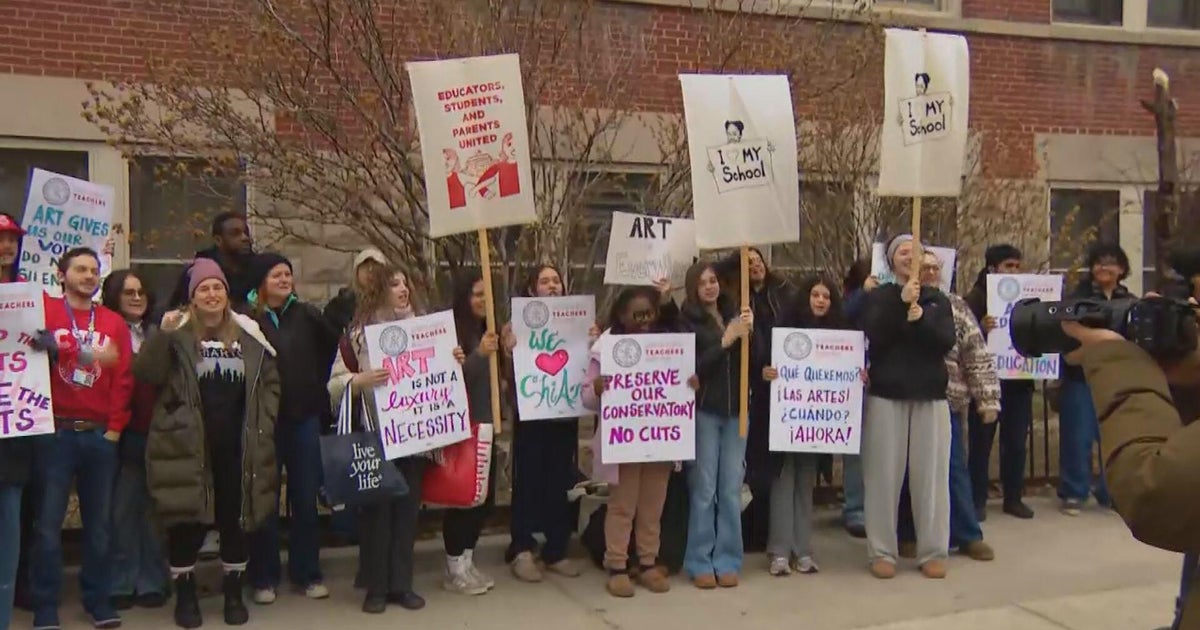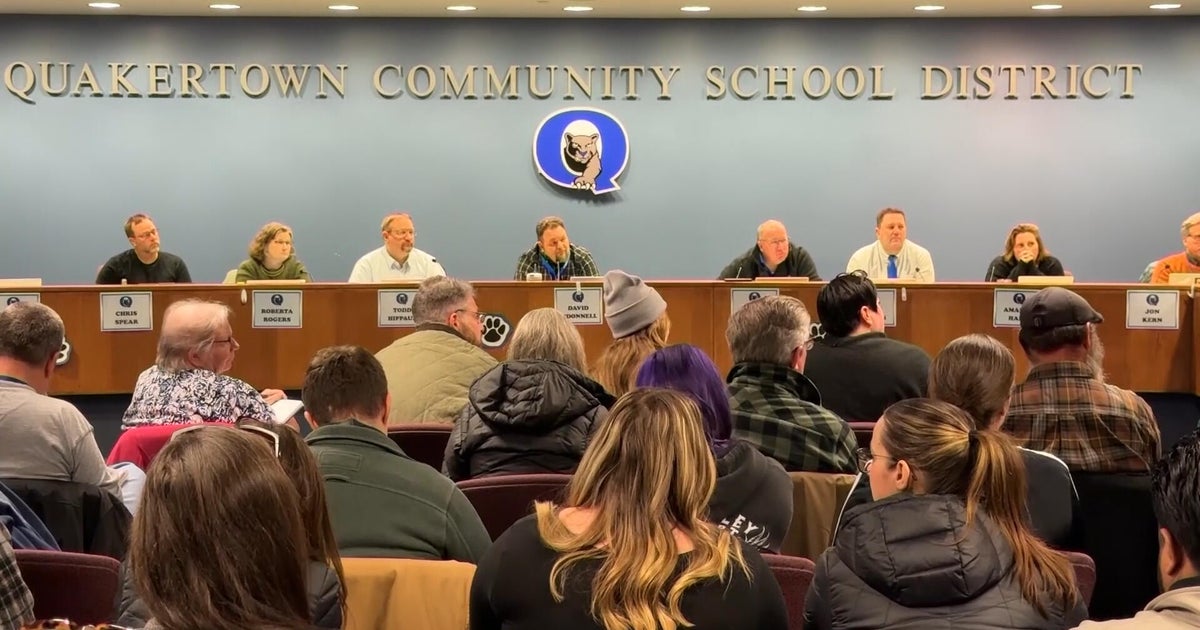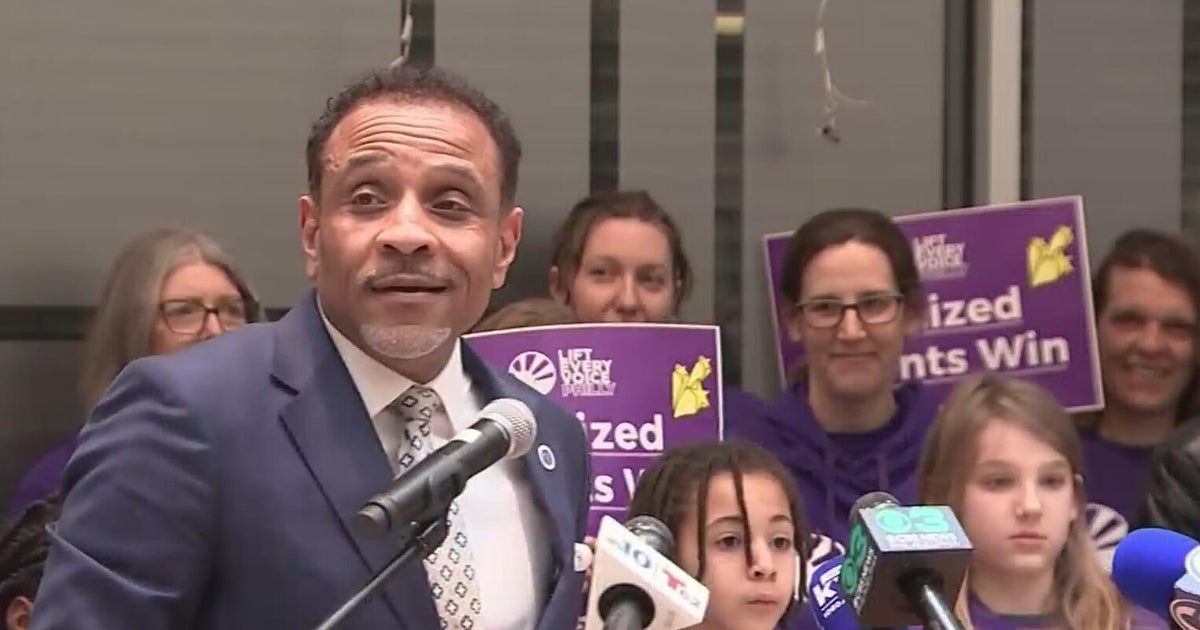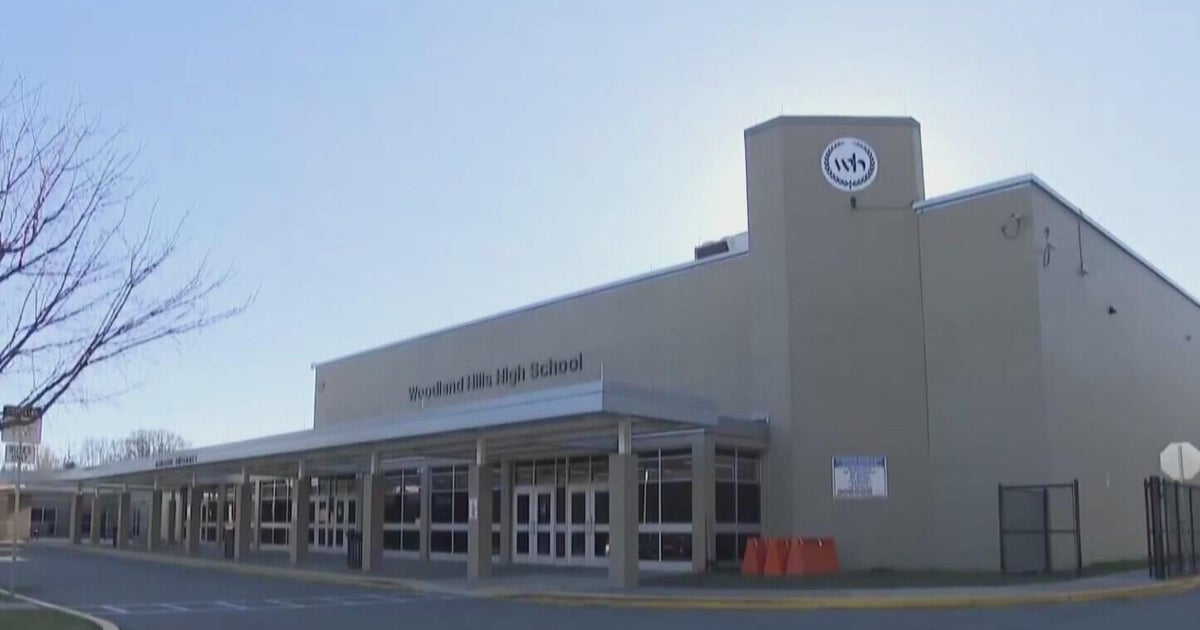Chicago Teachers Union to present potential Chicago Public Schools contract deal to full bargaining team next week
After nearly a year of contract talks, Chicago Public Schools and the Chicago Teachers Union appear close to a deal that will go up for union approval next week.
"We have a full package of proposals to present to the Big Bargaining Team on Monday at 1pm," CTU officials said in a post on social media.
The union's Big Bargaining Team consists of a few dozen teachers who have helped negotiate the potential deal.
If approved by the Big Bargaining Team on Monday, the potential contract deal would go to the union's executive board to decide whether to recommend the deal to the union's House of Delegates for a vote before finally presenting the proposal to rank-and-file union members for a ratification vote.
Any potential deal also would have to be approved by the 21-member Chicago Board of Education.
CPS officials had said Friday morning that a tentative agreement had not yet been reached, but district leadership and CTU officials bargained late into the night Thursday.
Johnson released a statement Thursday night saying in part that the progress is encouraging, but "the rank-and-file educators, the bargaining committee, and the elected delegates will ultimately make the decision on whether or not this offer is suitable."
What the potential deal will likely include
The deal likely will include a 4% raise for teachers, though not as much as the teachers Union had been asking for.
Johnson said in Thursday's statement that the potential deal would also include smaller class sizes and librarians in dozens of schools across the city.
The agreement likely includes provisions for some, if not all, of the sticking points that have stunted negotiations for months.
"They're going to get everything they want. They're not gonna get it to the degree that they demanded it, but they're gonna get some in each of these categories," said former Chicago Public Schools CEO Paul Vallas, who ran against Johnson in the 2023 mayoral election.
Vallas predicted the deal would come at great cost to Chicago taxpayers.
"This contract is not affordable," Vallas said. "If they can't get additional funding from the state, they're gonna have to get more money from the city," he said.
If the potential deal is ratified by the union and approved by the school board, the Chicago Board of Education would need to adjust their current budget to accommodate the cost of the new contract, although it's unclear exactly how much the potential deal would cost CPS. The school board also would need to vote on whether they will pay a disputed $175 million pension payment for non-teaching CPS staff.
The city of Chicago made that payment into the Municipal Employees' Annuity and Benefit Fund, but Mayor Brandon Johnson has argued CPS should reimburse the city for the cost. CPS Chief Executive Officer Pedro Martinez has said the payment is the city's legal obligation, and CPS can't afford to reimburse the city regardless.
The mayor has suggested CPS take out a loan to cover the payment, but Martinez has opposed it, and so far so has the school board.
"The district is facing its own deep financial challenges, and so that's impacted the city and how the city is going to close its budget," Chalkbeat reporter Reema Amin said.
If the school board does not agree to reimburse the city, the mayor will need to find the funds in the city's books to officially close out 2024 with a balanced budget, and many aldermen have said any such move should be put up for a vote by the City Council.
In a memo sent to City Council members, the mayor's budget director and chief financial officer did not commit to calling any city budget amendments for a City Council vote, but acknowledged the city would have to come up with more funding to cover the pension payment, and slammed current Martinez in the process, adding:
"CPS CEO has been non-committal at best and negligent at worst on CPS's reciprocal agreement with the city. The CPS administration's choice to not budget for the MEABF payment and prudently develop plans has done a disservice to us all, including their board of education."







